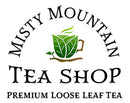Herbs to Help Calm Seasonal Allergies

Seasonal allergies can leave you feeling miserable. Thankfully there are several herbs and herbal constituents that may help alleviate those bothersome symptoms. It's important to note that while herbs can offer relief for some individuals, they may not work for everyone, and it's always a good idea to consult with a healthcare professional before starting any new herbal regimen.
Here are some easy to find herbs commonly used for seasonal allergies:
-
Stinging Nettle (Urtica dioica): Nettle is a well-known herb for allergies. It contains histamine, which might seem counterintuitive since histamine is associated with allergic reactions. Nettle can actually help desensitize the body to pollen and other allergens thus providing relief from allergy symptoms such as sneezing, itching, and congestion. Use caution if personally wildcrafted. The stinging element is eliminated once the herb is dried.
-
Butterbur (Petasites hybridus): Butterbur has been shown in some studies to reduce inflammation and allergy symptoms such as nasal congestion, sneezing, and itching. It's often used for hay fever and allergic rhinitis. It works as a natural antihistamine and anti-inflammatory agent.
-
Quercetin: While not an herb per se, quercetin is a plant pigment found in many fruits and vegetables. It has antioxidant and anti-inflammatory properties that may help reduce allergy symptoms by stabilizing mast cells, which release histamine.
-
Elder Flower (Sambucus spp.): Elder Flower has traditionally been used to treat colds and flu, but it may also offer relief for allergy symptoms of allergic rhinitis, including congestion and sinus pressure. Elder Flower efficacy is due to its anti-inflammatory and antihistamine properties.
-
Eyebright (Euphrasia officinalis): Eyebright is often used in herbal medicine for eye conditions, including those related to allergies. It can help reduce nasal inflammation and soothe irritated eyes.
-
Ginger (Zingiber officinale): Ginger has natural anti-inflammatory properties and may help alleviate symptoms of allergic reactions such as congestion and sinus pressure.
-
Turmeric (Curcuma longa): Curcumin, the active compound in turmeric, has potent anti-inflammatory effects that can help alleviate allergy symptoms by reducing inflammation in the airways and nasal passages..
-
Peppermint (Mentha piperita): Peppermint contains menthol, which can help relieve nasal congestion associated with allergies. With proper instruction, Peppermint Essential Oil can also be applied to the skin with the use of a carrier oil as well.
-
Ginkgo biloba: Ginkgo biloba has been shown to have anti-inflammatory effects and may help reduce symptoms of allergic rhinitis.
-
Chamomile (Matricaria chamomilla): Chamomile has anti-inflammatory and antihistamine properties and may help relieve allergy symptoms, allergic reactions and soothe irritated mucous membranes, particularly when consumed as a tea. It can also help promote relaxation and improve sleep quality, which may be disrupted by allergies.
-
Mucilage: Mucilage is a gel-like substance found in certain herbs like marshmallow root and slippery elm. It coats and soothes irritated mucous membranes in the respiratory tract, providing relief from coughing and throat irritation caused by allergies.
- Licorice root (Glycyrrhiza glabra): Licorice root has anti-inflammatory and immune-modulating properties that can help reduce inflammation and allergic reactions. Take with caution if you have a cardiac condition.
- Honey: Locally sourced honey may contain small amounts of pollen, which can help desensitize the body to allergens over time. While research on its effectiveness is mixed, some people find relief from seasonal allergies by consuming honey regularly.
Remember that individual responses to herbs can vary, and it's essential to consult with a healthcare provider, particularly if you're taking medications or have underlying health conditions. Additionally, while herbs can offer relief, they should not replace conventional allergy medications if prescribed by a doctor.
Information provided by Misty Mountain Tea Shop is for educational purposes only. This information has not been evaluated by the Food and Drug Administration and is not intended to diagnose, treat, cure or prevent disease. Please do your own research concerning the safety and usage of any products and consult a medical professional if needed.



Thank you for providing such a comprehensive and practical guide. Your blog has become a valuable resource for me, and I’m sure it will help many others on their journey to better manage High cholesterol. Looking forward to more insightful content from you.
Leave a comment